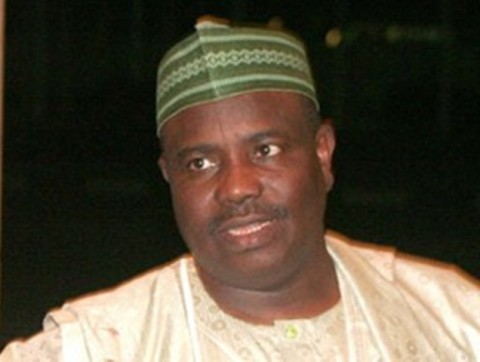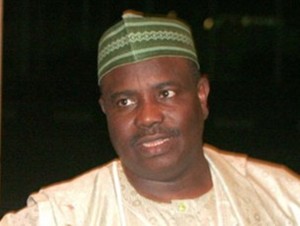Autonomy for LGs, a necessity
Articles/Opinion Friday, September 20th, 2013
By Michael Jegede
Before the National Assembly went on annual recess towards the end of July this year, the Senate and House of Representatives had separately debated and voted on the various items listed for amendment in the constitution.
Of all the recommendations in the reports presented by the Senate Committee on Constitution Review and their House of Reps counterpart, autonomy for local governments was of great concern to Nigerians. The Senate public hearing held across the six geopolitical zones and public people’s session conducted by the House of Reps last year in the 360 federal constituencies of the country, attested to the fact that majority of Nigerians were evidently for LG autonomy.
However, at the end of voting on each items, the Red Chamber dropped the clause for the proposed financial autonomy meant to abolish the joint state/local government account and allow the local councils to get direct funding from the federation account. On their part, members of the Green Chamber unanimously voted in favour of the abolition of the joint account in line with the aspirations of the people.
While many commended members of the House of Representatives for taking into cognizance the views of the people as reflected in the public sessions they conducted, in arriving at their decision on LG autonomy, the Senate was heavily condemned for voting against the proposal.
For instance, a pressure group under the aegis of Progressive Anambra Youths (PAY), in conjunction with Newbreed Youth Organization (NYO), said it was going to mobilize over one million Nigerian youths against the Senate, should the Senators continue to stand on the way of LG autonomy. They gave applause to House of Reps members, maintaining that their action was in accordance with the yearnings of the masses.
In a statement signed by the National President Newbreed Youth Organization, Comrade Okafor Nonso Smart and National Secretary, Mr. Chika Nath Nwakwo-Arinze, the group had given the Senate up till 14th of September this year, to reverse its decision or contend with over one million youths taking over the National Assembly.
In one of my previous write-ups on this issue captioned: “Quest for LG autonomy and Govs’ rantings”, I had noted in very clear terms that the governors were doing everything within their reach to forestall the granting of financial autonomy to local government in the ongoing constitution review process. Their (governors) push against according fiscal independence to the LGs, like I pointed out, was basically to ensure that they continue to emasculate the third tier of government to their own advantage.
Senator Odion Ugbesia is the Senator representing Edo Central senatorial district and a member of the Senate Constitution Review Committee. Asked in an interview why the Senators did not pass the LG autonomy clause, he said: “Today we have what is called the Governors’ Forum. This body is not known to the Nigerian constitution, but still determines the shape and direction of Nigerian politics because the governors have assumed so much powers not envisaged in the constitution. Why have they become so powerful? Because they control the political processes, political parties are under their whims and caprices, they have so much money…There are cases in court where the money directed to local governments doesn’t get to them because it is stopped at the state level. We are talking about true fiscal federalism. If the money meant for the third tier of government does not get there, then we have a problem because the governors don’t allow the money to get there.”
Vice Chairman, Senate Committee on Niger Delta and sponsor of the financial autonomy bill in the Senate, Senator Nurudeen Abatemi-Usman, had observed that the operation of the state/local government joint account as currently practiced was an aberration that must be corrected in the interest of Nigerians. He equally said that he was prompted to put up the bill so as to free local governments from the stranglehold and claws of the state governors.
Chairman, House of Representatives Committee on Science and Technology, Hon. Abiodun Akinlade, defended the verdict of the House on LG autonomy, maintaining that the members voted according to the wish of their people.
The All Progressives Congress (APC) legislator representing Yewa South/Ipokia Federal Constituency of Ogun State, said: “This is what our people want; we conducted a People’s Public Session all over the federation on November 10, 2012. The result of that session showed that Nigerians voted overwhelmingly for local government autonomy. As their representatives, we merely endorsed their wish by granting autonomy to local governments.”
Akinlade revealed that there were moves to thwart the decision of the Green Chamber by some forces, which were against local government autonomy. But according to him, “We had to ignore them because what was uppermost in our minds was the wish of our people. We are happy today that we protected their interest.”
Minister of Interior, Abba Moro had also at a point lent his voice to the debate on local government autonomy. A local council chairman for about eight years and one-time chairman of the Benue State chapter of Association of local Governments of Nigeria (ALGON), Moro had said: “I am an advocate for a holistic autonomy for local governments. I want a situation where the local government will operate as a true tier of government. We are operating federalism, a federalism that is epitomized or encapsulated in the three tiers of government of the federal, state and local government. And so, I expect that the framers of the constitution would have gone further than the scanty provisions in section 7 of the constitution of the federal republic of Nigeria 1999 to a level where provisions should have been made for the local governments to get their allocation direct from the federation account, for the local governments to exercise jurisdiction over their revenue avenues.”
However, all hope is not lost on the issue of local government autonomy. Since the House of Reps passed its own version, there are chances of it still scaling through at the conference session, where the committees of the two chambers will meet to harmonize their differences before the final passage by the National Assembly.
The fear again is the provision of the constitution which made it mandatory for 2/3 of the 36 State Houses of Assembly to approve each item passed by the Federal Legislature before it can have the force of law. Will the governors sit down and watch the state assemblies that are believed to be under their control give approval to LG autonomy which they are vehemently opposed to?
Much as the lawmakers would want to remain loyal to the governors for the role they may have played in their electoral victories, they must know that it is equally important to protect the interest of the populace, who gave them (the legislators) the mandate to represent them at the parliamentary arm of government. The granting of financial autonomy to local council is a necessary option to open the door of rapid development at the grassroots level.
Michael Jegede, a media practitioner wrote from Abuja
Related Posts
Short URL: https://www.africanexaminer.com/?p=1483























